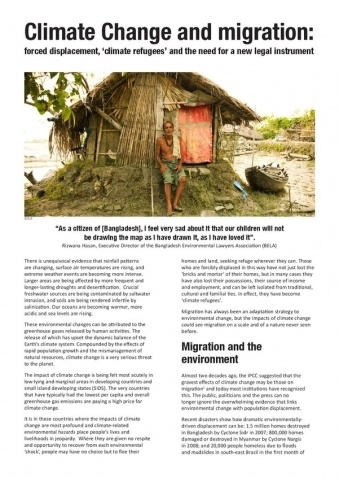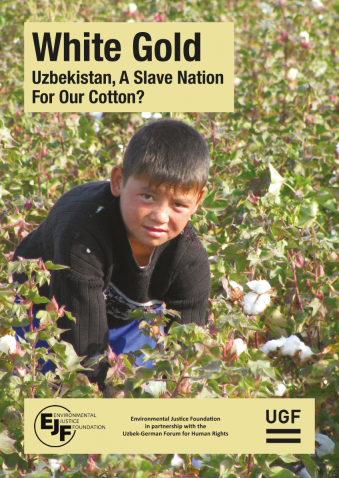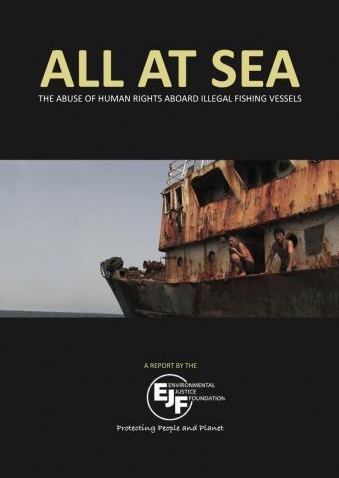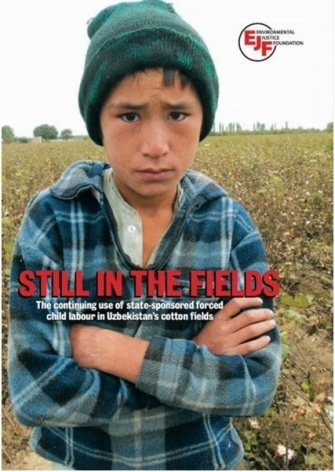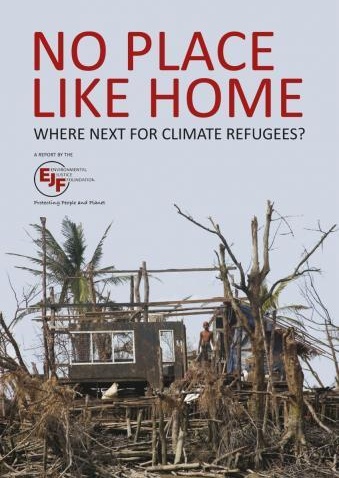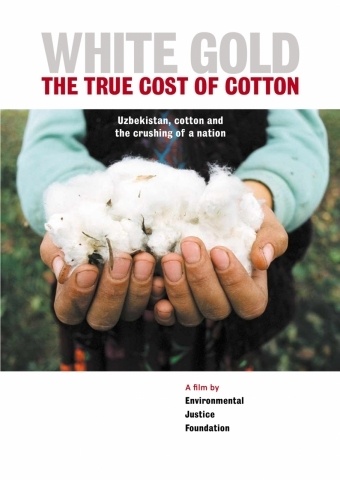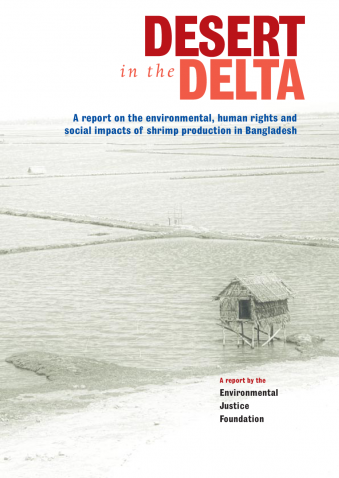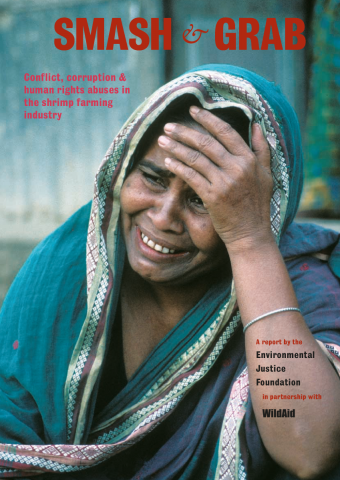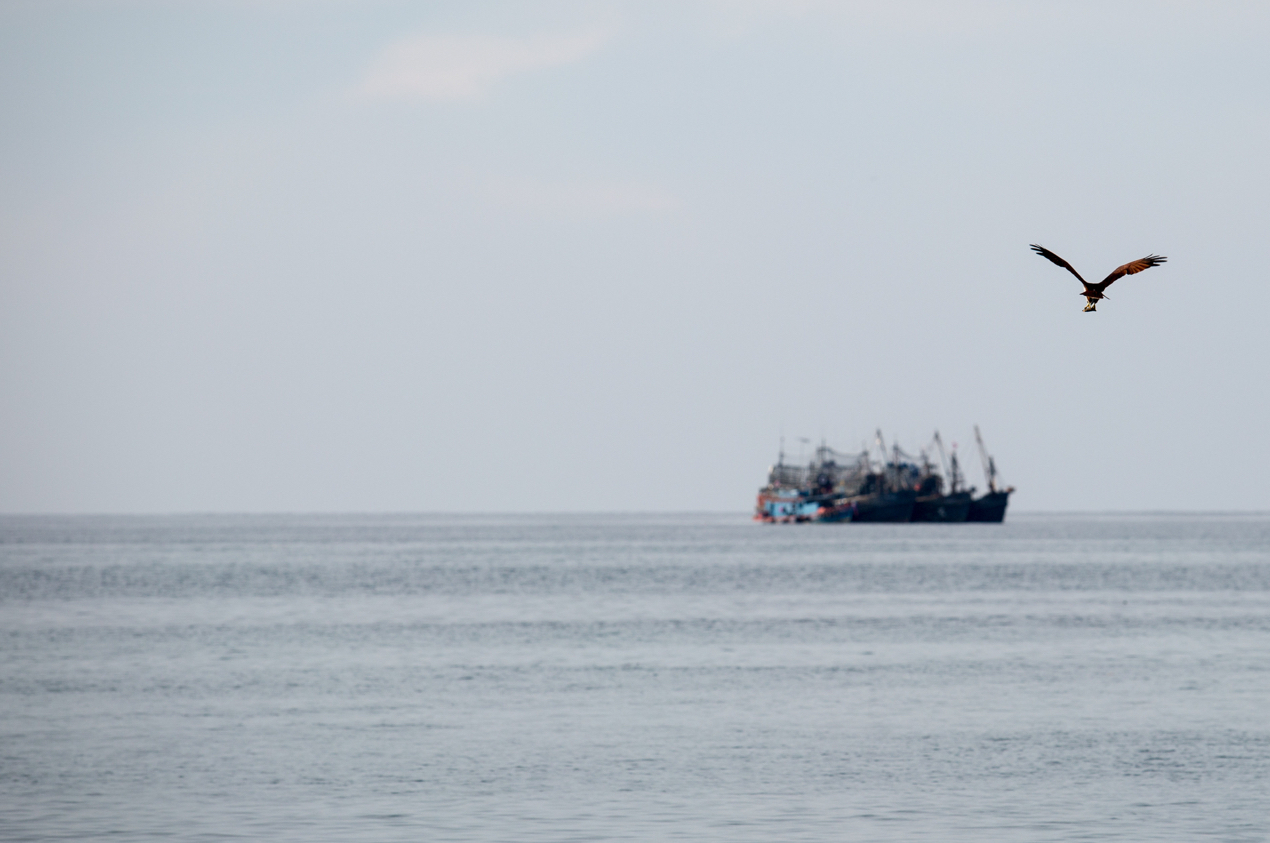
Search results
Showing 521-556 result returned for "human rights"
-
News & Media
 Sep 11, 2012Lush Germany and Holland select EJF as the latest charity to benefit from their Charity Pot SchemeRead
Sep 11, 2012Lush Germany and Holland select EJF as the latest charity to benefit from their Charity Pot SchemeRead -
News & Media
 Sep 11, 2012Whole Foods to launch exclusive Christmas candle produced by Isle of Skye Candle Company in support of EJFRead
Sep 11, 2012Whole Foods to launch exclusive Christmas candle produced by Isle of Skye Candle Company in support of EJFRead -
News & Media
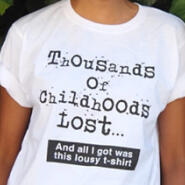 Jul 27, 2012'Thousands of Childhoods Lost... And all I got was this lousy T-shirt'Read
Jul 27, 2012'Thousands of Childhoods Lost... And all I got was this lousy T-shirt'Read -
News & Media
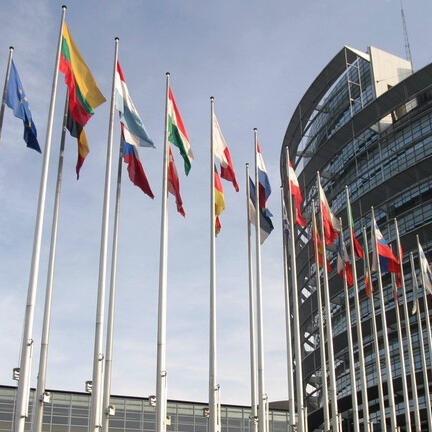 May 18, 2012European Parliament hearing calls for more action on climate change by the EURead
May 18, 2012European Parliament hearing calls for more action on climate change by the EURead
-
News & Media
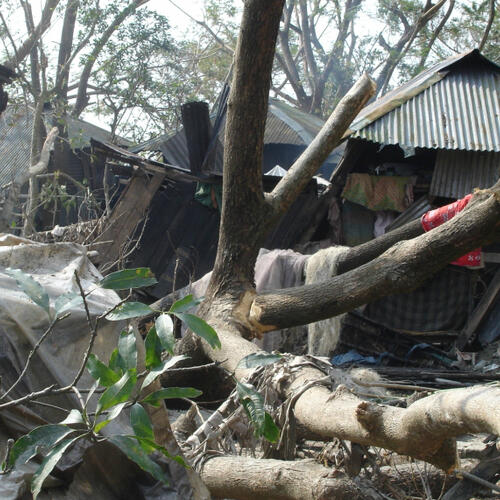 May 11, 2012Urgent call for a Special Rapporteur on climate change and human rightsRead
May 11, 2012Urgent call for a Special Rapporteur on climate change and human rightsRead -
News & Media
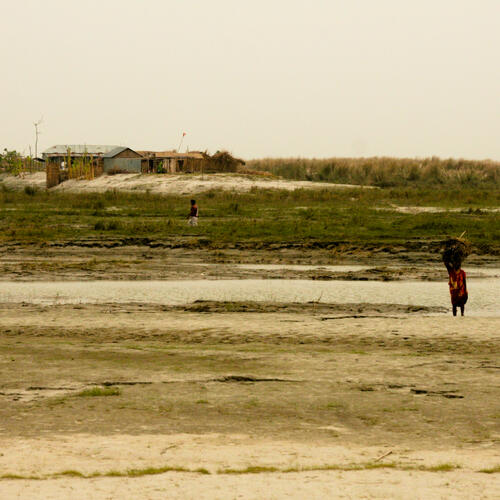 May 11, 2012BRIEFING: The impacts of climate change on human rights and forced migration in BangladeshRead
May 11, 2012BRIEFING: The impacts of climate change on human rights and forced migration in BangladeshRead -
News & Media
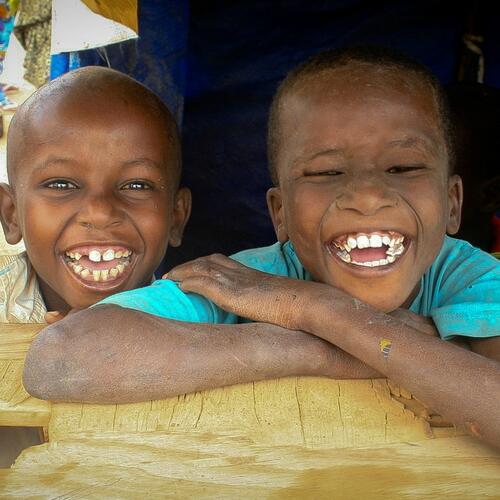 May 11, 2012EJF launches new campaign actionRead
May 11, 2012EJF launches new campaign actionRead -
News & Media
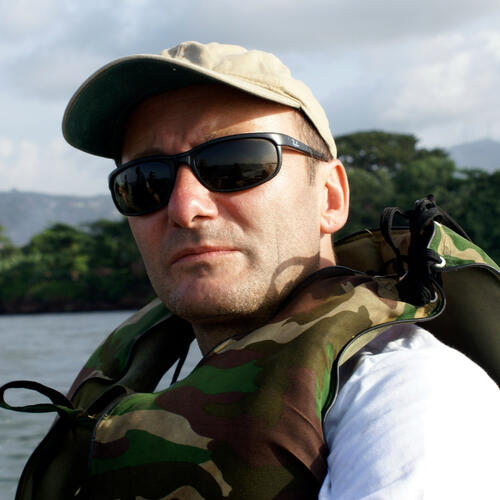 Mar 30, 2012A step forward by the Human Rights CouncilRead
Mar 30, 2012A step forward by the Human Rights CouncilRead
-
Films
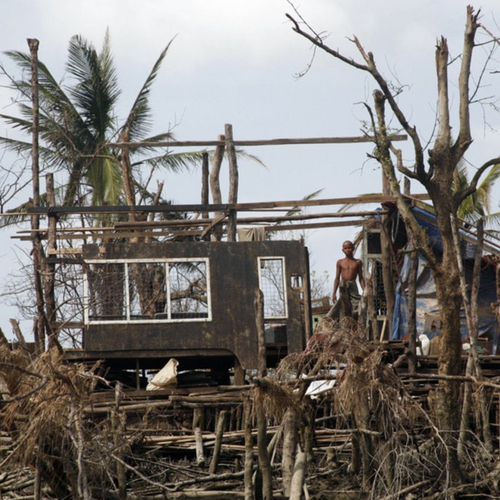 Mar 14, 2012No Place Like Home: IntroductionRead
Mar 14, 2012No Place Like Home: IntroductionReadNo Place Like Home: Introduction
By 2050, there will be an estimated 150 million climate refugees - people forced to leave their homes by droughts, extreme weather patterns and sea level rise associated with climate change. There is no international law designed to protect these most vulnerable people and their needs.
President Mohamed Nasheed of the Maldives and Premier Talagi of Niue told EJF about how climate change is affecting their countries.
EJF is calling for international protection for climate refugees. We believe that that there needs to be a legally-binding, international Protocol that identifies and protects these people displaced from their homes by deteriorating environmental conditions. We campaign for a new Special Rapporteur on human rights and climate change to be established in the United Nations Human Rights Council.
Human rights should be at the heart of international action on climate change.
-
Films
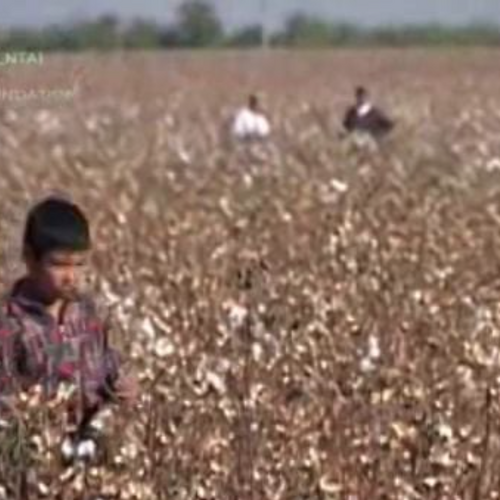 Mar 13, 2012Cotton: child labour and human rights abusesRead
Mar 13, 2012Cotton: child labour and human rights abusesReadCotton: child labour and human rights abuses
Children as young as seven are employed in the cotton industry for a variety of tasks including cottonseed production, pesticide spraying and the annual cotton harvest.
-
Films
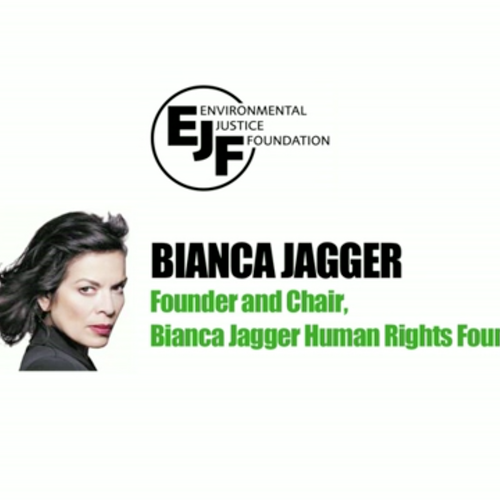 Mar 06, 2012An advocate's message: Bianca Jagger, Human Rights FoundationRead
Mar 06, 2012An advocate's message: Bianca Jagger, Human Rights FoundationReadAn advocate's message: Bianca Jagger, Human Rights Foundation
Part of a series of interviews with philosophers, scientists, heads of state, academics, UNHCR on migration and climate change curated and produced for the Hay Festival Maldives 2010.
-
Films
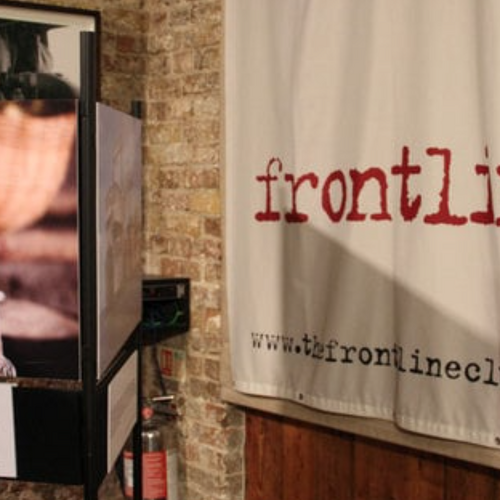 Feb 29, 2012Plunder of the Oceans - EJF at the Frontline ClubRead
Feb 29, 2012Plunder of the Oceans - EJF at the Frontline ClubReadPlunder of the Oceans - EJF at the Frontline Club
(Audio only)
EJF's Ocean Campaigner Andy Hickman speaks at the Frontline Club on the 7th June. Short film screening of Deadly Catch, followed by a discussion with an expert panel and audience Q&A. Chaired by Tom Clarke, science correspondent Channel 4 News. Domitilla Senni, policy adviser to the Pew Environment Group since 2006. John Pearce is a Senior Consultant at MRAG Ltd.
One of the single biggest factors in ocean degradation is overfishing. Fish stocks have declined dramatically, with as much as 90% of big fish gone in some parts of the global ocean. More than one billion people rely on fish as their main source of protein globally. As catches decline and quotas and rules are tightened in response, there has been a huge increase in illegal, unreported or unregulated (IUU) or “pirate” fishing.
Pirate fishing is estimated to make up almost one-fifth of the global catch, and respects neither national boundaries nor international attempts to manage ocean resources. The recent seizure of £4 million worth of seafood in the Spanish port of Las Palmas, allegedly caught illegally in west African waters and headed for dinner tables in Europe, serves to highlight this growing criminal trade, which exploits lax regulations at ports and on the high seas, and often involves serious human rights infringements.
-
Films
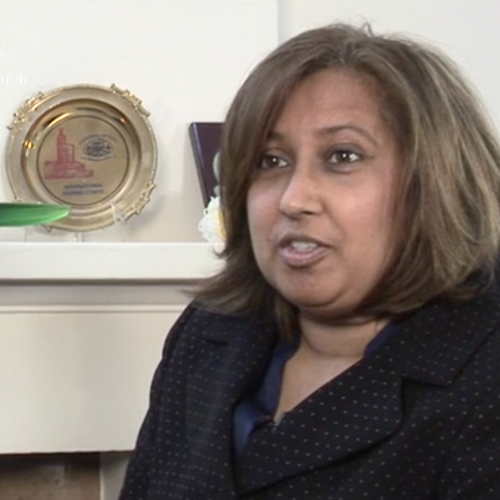 Feb 02, 2012An advocate's concern: Dr Purna Sen, head of Human Rights Commonwealth SecretariatRead
Feb 02, 2012An advocate's concern: Dr Purna Sen, head of Human Rights Commonwealth SecretariatReadAn advocate's concern: Dr Purna Sen, head of Human Rights Commonwealth Secretariat
EJF interviews Dr Purna Sen, former Head of Human Rights Commonwealth Secretariat, on the human impacts of climate change.
-
Films
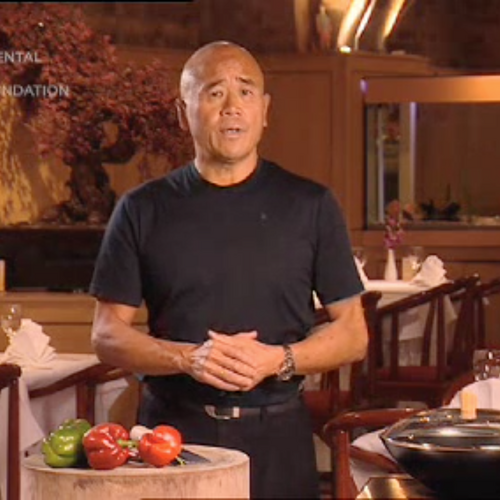 Feb 02, 2012Ken Hom's recipe for disasterRead
Feb 02, 2012Ken Hom's recipe for disasterReadKen Hom's recipe for disaster
Chef Ken Hom describes the detrimental impacts of shrimp farming to the marine wildlife, environment, livelihoods and human rights. Together with EJF, he encourages consumers to demand sustainable, ethically-produced shrimp.
-
Films
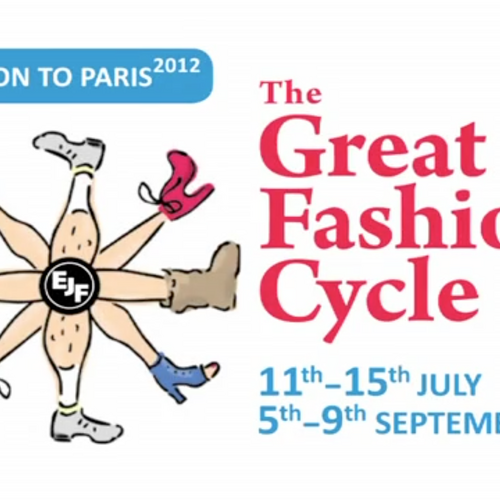 Jan 31, 2012The great fashion cycleRead
Jan 31, 2012The great fashion cycleReadThe great fashion cycle
Get active for a better fashion industry. Take part in EJF's iconic London to Paris bike ride and help us address human rights and environmental abuses in the fashion industry.
-
News & Media
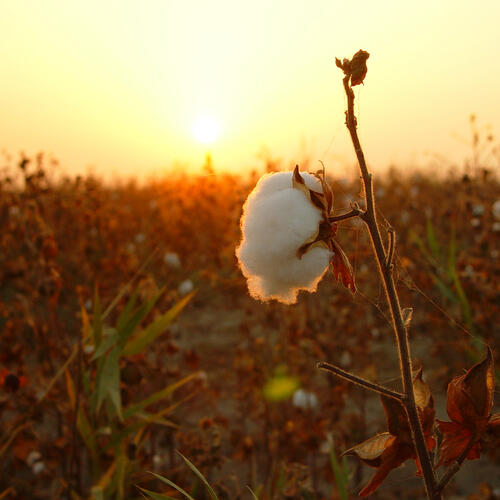 Dec 15, 2011European Parliament rejects proposal to reduce tariffs on Uzbek textilesRead
Dec 15, 2011European Parliament rejects proposal to reduce tariffs on Uzbek textilesRead
-
News & Media
 Nov 27, 2011Climate change won’t wait, and nor should weRead
Nov 27, 2011Climate change won’t wait, and nor should weRead -
News & Media
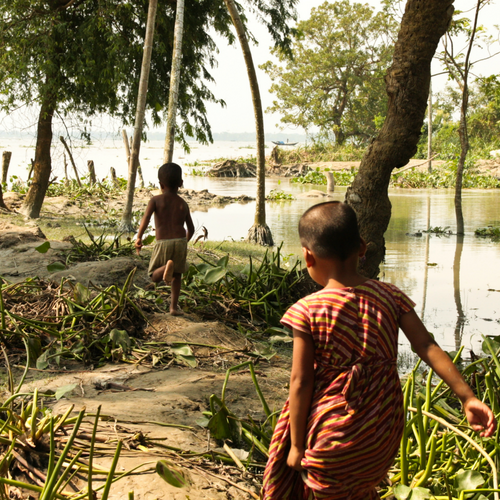 Oct 31, 2011PechaKucha-inspired EJF event on climate refugeesRead
Oct 31, 2011PechaKucha-inspired EJF event on climate refugeesRead -
News & Media
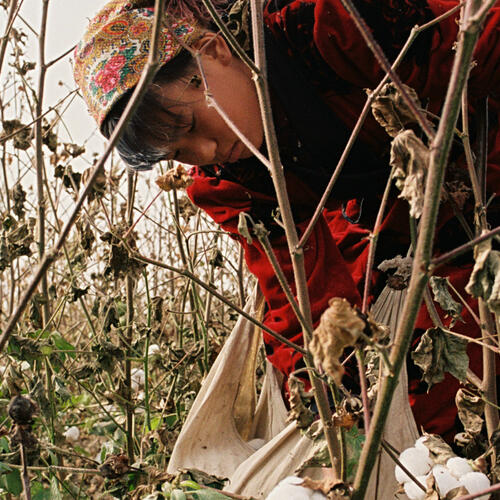 Sep 12, 2011NY Fashion Week cancels show by Uzbek president's daughterRead
Sep 12, 2011NY Fashion Week cancels show by Uzbek president's daughterRead -
News & Media
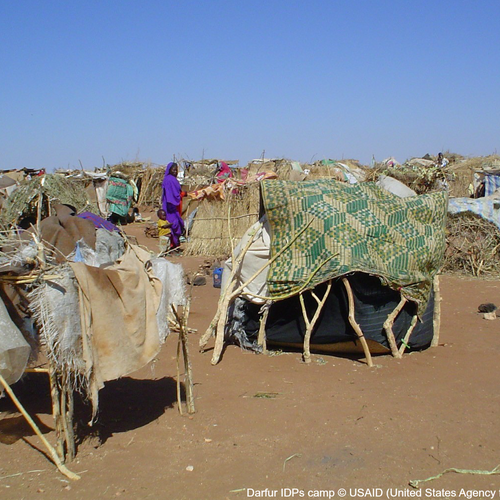 Jul 25, 2011Security Council under fire over climate changeRead
Jul 25, 2011Security Council under fire over climate changeRead
-
News & Media
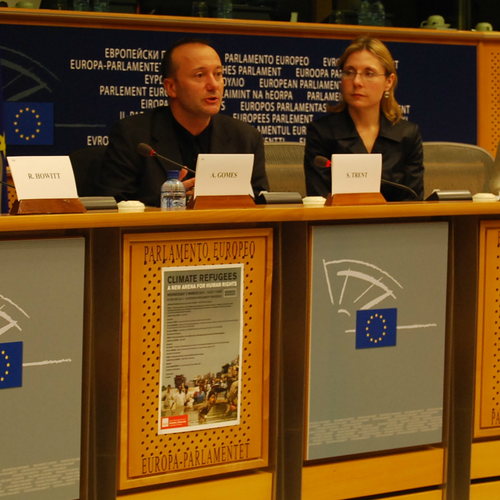 Mar 03, 2011EJF brings the issue of climate refugees to the European ParliamentRead
Mar 03, 2011EJF brings the issue of climate refugees to the European ParliamentRead -
News & Media
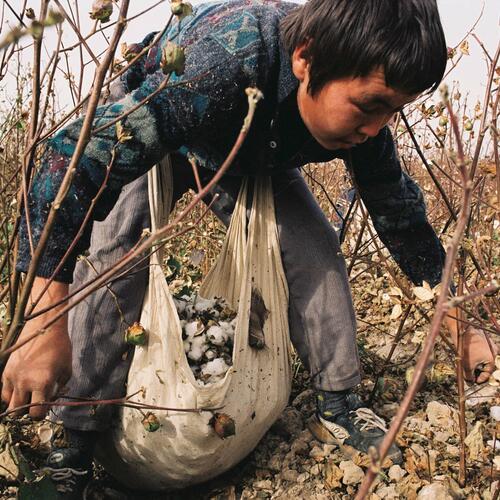 Feb 23, 2011EJF invited by UK Government to discuss Uzbek cottonRead
Feb 23, 2011EJF invited by UK Government to discuss Uzbek cottonRead -
Reports
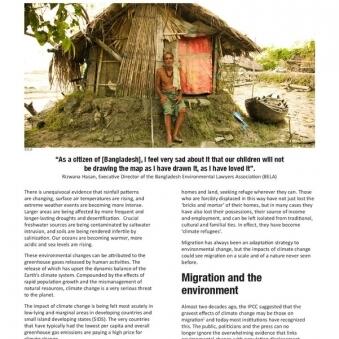 Feb 02, 2011Climate change and migration: Forced displacement, ‘climate refugees’ and the need for a new legal instrumentRead
Feb 02, 2011Climate change and migration: Forced displacement, ‘climate refugees’ and the need for a new legal instrumentReadEJF is working with our partners to secure a legally-binding, international protocol that can fill the existing gaps in legislation and ensure that the refugee support system evolves within the context of our changing world. This new legal instrument would recognize people displaced by deteriorating environmental conditions associated with climate change as a vulnerable social group, and confer them equivalent but legally distinct protection to that conferred to refugees fleeing persecution under the 1951 Geneva Convention. This briefing outlines specific recommendations for the EU, including the need to systemically link aid and development, environment and migration policies and decision-making.
-
News & Media
 Jan 28, 2011EU welcomes Uzbek President KarimovRead
Jan 28, 2011EU welcomes Uzbek President KarimovRead
-
News & Media
 Jan 24, 2011Ask your MP to sign EDM 1284 calling on the UK Government to avoid Uzbek cottonRead
Jan 24, 2011Ask your MP to sign EDM 1284 calling on the UK Government to avoid Uzbek cottonRead -
Reports
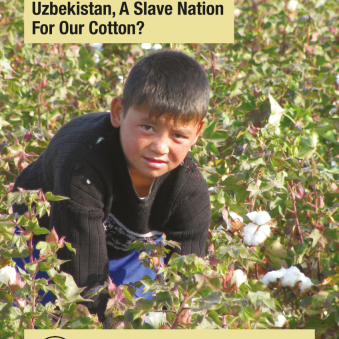 Dec 31, 2010White Gold: Uzbekistan, a Slave Nation for Our Cotton?Read
Dec 31, 2010White Gold: Uzbekistan, a Slave Nation for Our Cotton?ReadEJF's report White Gold: Uzbekistan, Slave Nation for Our Cotton? summarises information provided by independent journalists and human rights activists on the conditions under which the Uzbek cotton industry operates, and produces evidence of young children picking cotton at the behest of the authoritarian Uzbek government.
-
News & Media
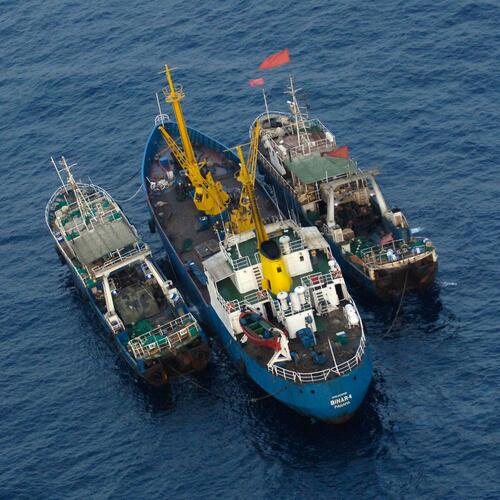 Oct 28, 2010Sierra Leone lowers the flag on ‘pirate’ fishing operationsRead
Oct 28, 2010Sierra Leone lowers the flag on ‘pirate’ fishing operationsRead -
News & Media
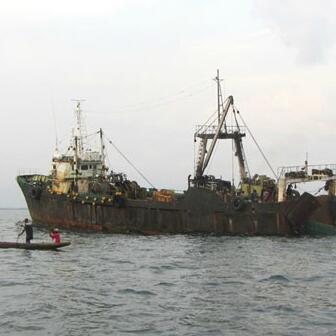 Oct 10, 2010Government recognition for EJFRead
Oct 10, 2010Government recognition for EJFRead
-
News & Media
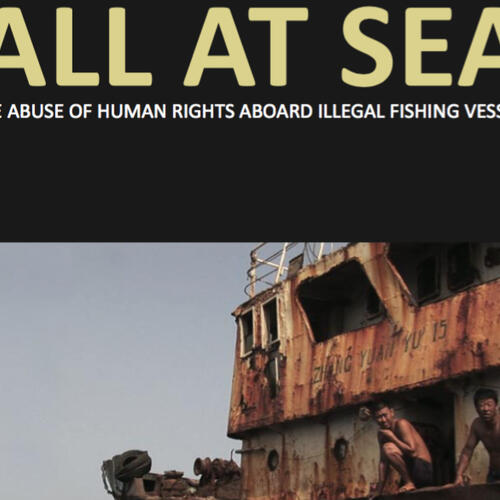 Sep 30, 2010EJF releases new reportRead
Sep 30, 2010EJF releases new reportRead -
News & Media
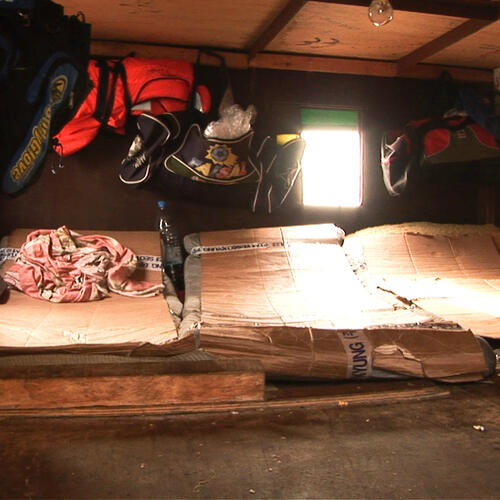 Sep 30, 2010The Guardian: Modern day slavery in the fishing industryRead
Sep 30, 2010The Guardian: Modern day slavery in the fishing industryRead -
Reports
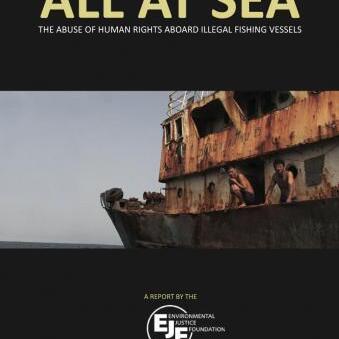 Jan 01, 2010All At SeaRead
Jan 01, 2010All At SeaReadThe report provides case studies from West Africa, Southeast Asia, the Indian and Pacific Oceans, all regions with high incidences of illegal fishing. Human rights abuses directly documented by EJF and other organisations, including the International Transport Workers Federation (ITF), include physical and emotional abuse, incarceration, forced labour without pay, abandonment, and reports of murder.
-
Reports
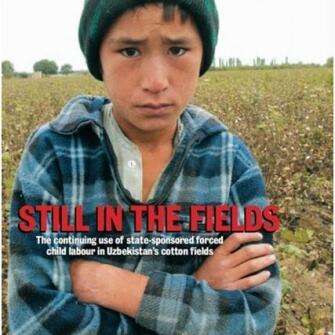 Dec 30, 2009Still in the FieldsRead
Dec 30, 2009Still in the FieldsReadThe report reveals the widespread use of state-sponsored forced child labour in the cotton fields of the Central Asian Republic of Uzbekistan, the world’s 3rd largest cotton exporter and a major supplier to both European traders and ultimately, the EU marketplace.
Its release coincides with the tenth anniversary of the landmark International Labour Organisation (ILO) Convention 182 on the Worst Forms of Child Labour.
-
Reports
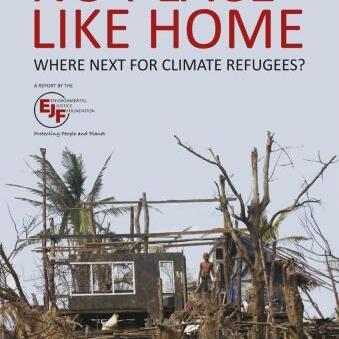 Jan 01, 2009No Place Like Home: where next for climate refugees?Read
Jan 01, 2009No Place Like Home: where next for climate refugees?ReadEJF's No Place Like Home: Where next for climate refugees? report considers how the negative impacts of climate change are impacting on human rights and driving millions of people from their homes and land each year. It puts the call to governments and political leaders to secure a new agreement on climate refugees, guaranteeing them effective enjoyment of their human rights and a fair claim to our shared world.
-
Reports
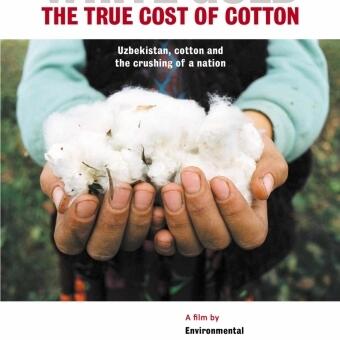 Dec 31, 2005White Gold: The True Cost of CottonRead
Dec 31, 2005White Gold: The True Cost of CottonReadThis internationally acclaimed report exposes how the billion-dollar cotton industry is causing an environmental catastrophe and human rights abuses in Uzbekistan, Central Asia.
White Gold highlights the disastrous demise of the Aral Sea as the rivers that once fed it have been diverted to irrigate cotton fields. The report also draws attention to the endemic use of forced child labour in the annual cotton harvest. Uzbekistan is unique for the scale of forced child labour - hundreds of thousands of children are forced to labour in the fields undergoing arduous work for little or no pay.
Detailed investigations by EJF expose the use of cotton revenues in Uzbekistan to support a corrupt, brutal and coercive dictatorship.
-
Reports
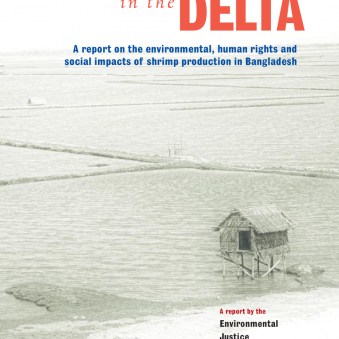 Feb 02, 2004Desert in the DeltaRead
Feb 02, 2004Desert in the DeltaReadThe report summarises the abuses and problems associated with shrimp production in Bangladesh, while defining potential solutions. Researched over an 18-month period, it incorporates over 250 references and, crucially, the personal testimony of Bangladeshi individuals directly affected by the shrimp industry.
This report is one of a series documenting EJF’s international investigations into the social, economic and environmental impacts resulting from shrimp production and consumption.
-
Reports
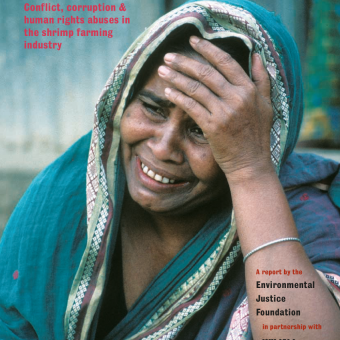 Jan 01, 2003Smash and GrabRead
Jan 01, 2003Smash and GrabReadThis report is one of a series documenting EJF’s international investigations into the social, economic and environmental impacts resulting from shrimp production and consumption.
Shrimp farming has had major impacts on coastlines (particularly mangrove forests) and coastal communities worldwide. Shrimp is becoming a more affordable food-stuff in industrialised nations but the true cost of shrimp is that paid by the rural poor in producer countries.
